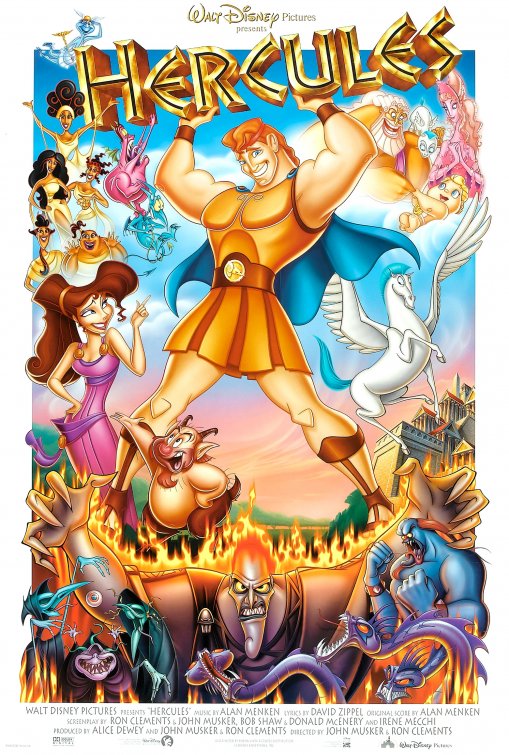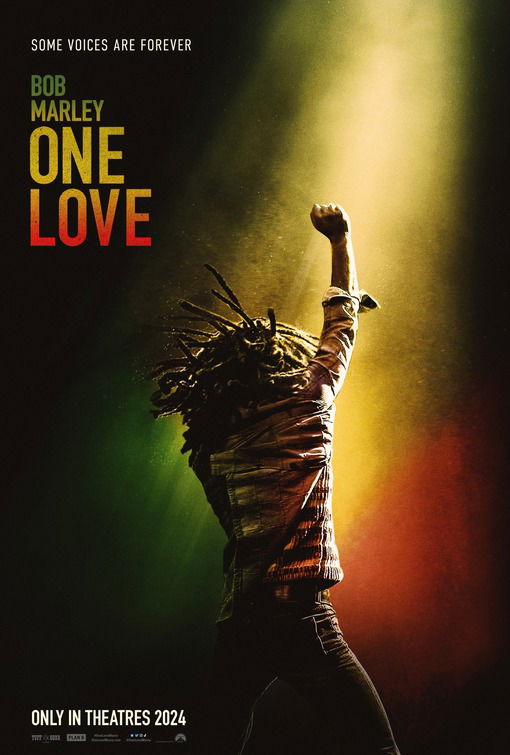“Marred by Revisionist History Promoting False religion”

| None | Light | Moderate | Heavy | |
|---|---|---|---|---|
| Language | ||||
| Violence | ||||
| Sex | ||||
| Nudity |
What You Need To Know:
BOB MARLEY: ONE LOVE has some great music. There are also positive, inspiring references to God and faith. However, the movie doesn’t question Marley’s commitment to African nationalism or the religious cult’s use of marijuana as a sacrament. It also doesn’t question Markley’s apparent worship of Haile Selassie as the second coming of Christ and as Lord of Lords. In fact, the movie contains overt revisionist history. For example, BOB MARKEY: ONE LOVE neglects to mention that Marley, his wife and their children eventually converted to the Ethiopian Orthodox Church.
Content:
Title character has a false religion (Rastafarianism) that worships a false Christ and that views marijuana use as a sacrament, mitigated by some positive Christian, biblical, moral elements and references, but movie has strong revisionist history that neglects to mention that the title character (who grew up in a Christian home earlier in his life) and his wife and children eventually returned to Christianity before the title character’s untimely death (see our report on the evidence for this inside the Main Review);
At least one “f” word, two “s” obscenities, one Jesus profanity, and one OG profanity;
Images of riots in the street, two gunmen shoot a woman off screen, invade a house and try to shoot a popular singing star but the singer’s manager steps in front of his friend and takes six bullets (everyone survives and recovers), and singer later angrily punches his manager and kicks him for trying to profit off a planned concert tour to Africa;
Marital infidelity is implied and briefly discussed in one scene, but not shown;
Brief upper male nudity;
Brief alcohol use;
Some possible tobacco smoking and scenes with apparent marijuana smoking, which is excused as being part of a quirky religion, so marijuana use is promoted and not rebuked; and,
References to two Jamaican gangs fighting, title character is shown having a dream about himself as a boy being saved from a massive crop fire by his false Christ hero, and title character gets uncontrollably angry when he learns his manager tries to make a profit out of a benevolent concert tour planned for Africa and the title character’s fans living there.
More Detail:
BOB MARLEY: ONE LOVE has some brief flashbacks to key moments in Marley’s past, such as the time when he mother moved him from Jamaica to a relative’s place in Delaware. The key image in those flashbacks are images of a young Marley riding on a bus with his mother while curled up next to her. There’s also a brief flashback to Marley meeting a Rastafari leader for the first time.
However, the movie opens with Marley planning a free concert in December 1976 to bring people in Jamaica together during a period of political violence in that country. Sadly, two nights before the concert, Marley, his manager, Don Taylor, and Markey’s wife, Rita, are wounded when two gunmen secretly enter Marley’s well-guarded home. Rita suffered serious injuries sitting in their car, but Marley suffered only minor wounds because Taylor stepped in front of his friend to take six bullets for him. Taylor and Rita eventually make full recoveries, and Marley rushes to the hospital to be with Rita.
After the shooting, Marley moves to London to pursue his budding musical career while Rita and their three children move to his mother’s place in Delaware. The movie shows Marley working on his next album, EXODUS, whose title was inspired by one of his people playing the theme song (which was written by Pat Boone) to the movie EXODUS starring Paul Newman and Eva Marie Saint from the book by Leon Uris, about the founding of the modern state of Israel in 1948. The album turns out to be Marley’s breakthrough hit in England and the United States, and he and his band start to go on tours, with Rita singing as one of three backup singers.
As a Rastafarian, Marley strongly believes in African nationalism and Pan-Africanism, based on one of the religion’s biggest idols, Marcus Garvey, a black nationalist born in Jamaica. So, he wants to plan a concert tour in Africa. The problem is, there are few big venues in Africa.
So, the question becomes, will Marley and his manager, Don Taylor, be able to put together a concert tour there? And, will Marley ever return to Jamaica?
BOB MARLEY: ONE LOVE has some great music. There are also positive references to God (whom Marley liked to call Jah for Jehovah, after the Jamaican and Rastafarian practice of relating to God) and faith.
However, the movie doesn’t question Marley’s commitment to African nationalism and his religious cult’s use of marijuana as a sacrament. ONE LOVE also doesn’t question Marley’s apparent worship of former Ethiopian Emperor Haile Selassie, who is viewed by Marley and many Rastafarians according to his Ethiopian title of “Conquering Lion of the Tribe of Judah” and “King of King, Lord of Lords,” as well as the second coming of Jesus Christ.
Rastafari, the name for the monotheistic cult, is derived from Haile Selassie’s title before he was named Emperor of Ethiopia in 1930. Haile’s real first name is Tafari, which means “one who is respected or feared,” and Ras is a title meaning Prince or Head, the heir apparent to the imperial throne of Ethiopia. Hence, the Rastafarians worship Haile Selassie as “Ras Tafari.” That said, members of the religion vary widely in their beliefs about the Emperor’s identity, especially because he was assassinated in 1974 and because the cult leaders and members don’t like to pin down their belief system into specific doctrines.
However, it’s important to note that, before his wife, Rita, introduced Marley to the Rastafari religion in 1966, Marley was an avid Bible reader and attended an orthodox Christian church with his mother. So, singing Christian hymns with his mother was part of his life as a youngster. Thus, his singing group’s early 1962 hit, “Judge Not,” has strong Christian references in it. Also, their 1965 hit, “One Love,” is a fast version of Marley’s famous reggae version of the song. Both versions are a reworking of the hit 1965 gospel song “People Get Ready” by Curtis Mayfield and The Impressions, one of the greatest gospel songs ever written for pop music. The movie includes Marley’s lyrics to that song, which include an admonition to praise the Lord and a lyric saying, “There’s no hiding place from the Father of Creation.” However, the movie also includes dialogue where Marley calls Haile Selassie “King of Kings and Lord of Lords,” and references to the worship of Selassie. It also has two strong swear words, depicted marijuana use and references in one scene to extramarital affairs that both Marley and his wife had.
Few people know, however, including, apparently, the filmmakers behind BOB MARLEY: ONE LOVE, that Rita and her children with Marley were baptized in the Ethiopian Orthodox Church in 1973. This information comes from the man who also eventually baptized Bob Marley himself in 1980, on Nov. 4, Archbishop Abuna Yesehaq. Marley’s wife, Rita, confirms in her book NO WOMAN, NO CRY, that Marley himself requested the baptism (cancer eventually took Marley’s life in May 1981). Also, according to Matthew Becklo in “Did You Know Bob Marley Converted to Christianity Before He Died?,” ALLETEA, 02/06/23 (Did you know Bob Marley converted to Christianity before he died? (aleteia.org), Dean MacNeil in his book THE BIBLE AND BOB MARLEY, “identified 137 distinct biblical references, largely from Psalms and Proverbs, in [Marley’s] Island Records era.” MacNeil also notes that Marley joined the Twelve Tribes of Israel sect of Rastafari, “the most ‘Christian’ and Bible-based sect of Rastafari.”


 - Content:
- Content: 

